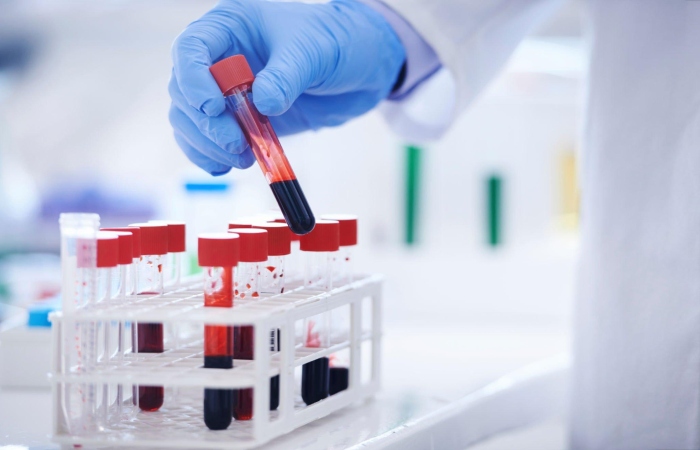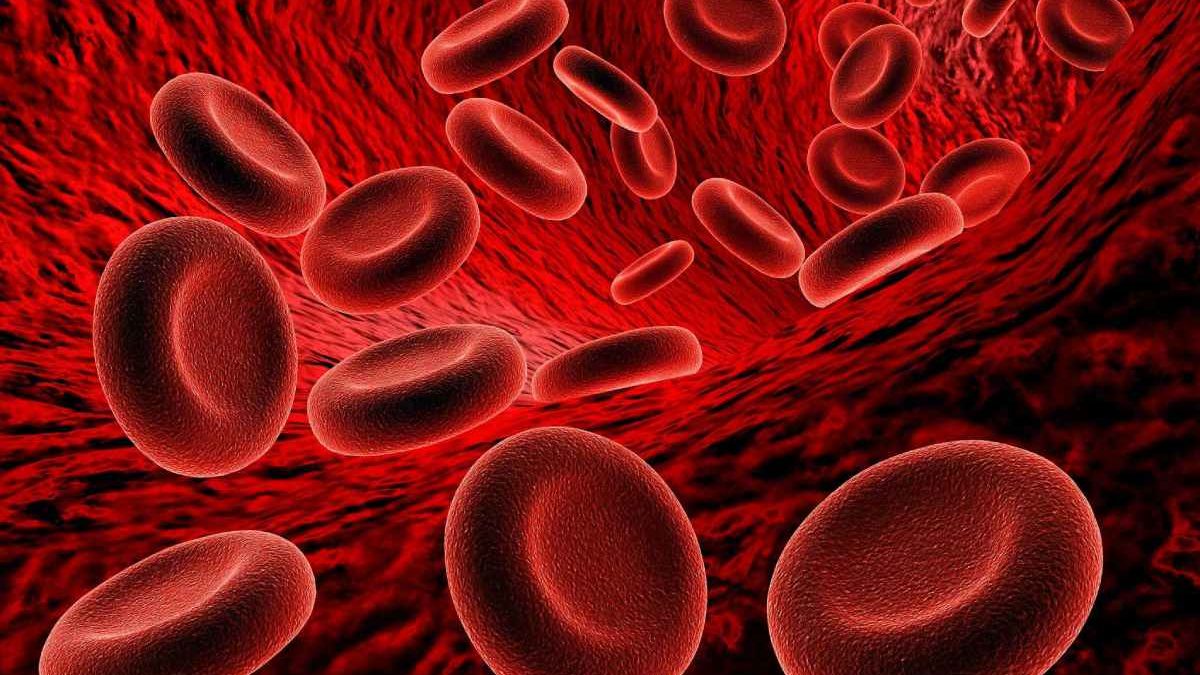Table of Contents
Introduction
Rajkotupdates.News:emm-Negative-Rare-Blood-Group-Found-in-Rajkot-Man-11th-Such-Case-Worldwide – Blood groups are definite by the presence or absenteeism of antigens on the surface of red blood cells (RBCs). While the ABO and Rh systems are the most well-known, more than 300 blood group antigens have been identified. The emm-negative blood group is a rare blood type characterized by lacking the Emm antigen, which belongs to the Dombrock blood group system (DO). The ART4 gene encodes the Emm antigen, and its absence can lead to immunological reactions in transfusion settings.
What Is The Emm-Negative Blood
Emm-negative blood is a rare group lacking the Emm antigen found on the surface of red blood cells. It is uncommon, with less than 0.1% of the world’s population having this blood type. This rarity poses a challenge in emergencies requiring the correct blood type. Maintaining a database of individuals with this blood type is crucial to ensure they receive the right blood type in emergencies. In addition, further research on this blood type can lead to medical breakthroughs.
Emm Negative Rare Blood Group

A 65-year-old Rajkot resident was shock when he couldn’t locate blood for a 2020 heart surgery that match his blood type. His known blood type was AB-positive, a general universal acceptor, which added to the surprise. But after a long search, he discovers the first EMM-negative blood case in India, the blood type’s 11th documented incidence worldwide. Explore other aspects of rajkotupdates. News:emm-negative-rare-blood-group-found-in-rajkot-man-11th-such-case-worldwide.
Rare Blood: What Makes the case unique
Identifying rare blood types would assist experts in addressing such cases more efficiently, allowing them to provide prompt medical assistance, if feasible, and potentially shorten the overall response time.
Opinion of Medical Director Ripal Shah Regarding EMM Negative Blood
According to Ripal Shah, Medical Director of Prathama Laboratory in Ahmedabad, after a cross-check with 40 to 50 samples the facility had on hand, the patient had the AB+ blood group. “We search every avenue in India to find a blood match for him.
His blood had a peculiar smell about it, I thought. We also contrasted his blood with blood samples from his kids. Even so, it didn’t work out”. Therefore, the model was sent to New York.
For more than a year, they couldn’t come to a decision. The COVID-19 pandemic also impacte the Rajkot updates. News:EMM Negative A Rare Blood Group Found In Rajkot Man 10th Such Case Worldwide process’s delay. According to Shah, the doctors gave him medicine to increase his hemoglobin level as they wait. Also, as per rajkotupdates.News: Despite expanding the patient’s hemoglobin level, the surgeon could not procee since the patient was unprepare. He was COVID-19-infecte and went away peacefully a month ago.
Type Of Blood Emm-Negative – Rajkotupdates.News:emm-Negative-Rare-Blood-Group-Found-in-Rajkot-Man-11th-Such-Case-Worldwide
Rajkotupdates. News:EMM Negative A Rare Blood Group Found In Rajkot Man 11th Such Case Worldwide.
Only 11 individuals worldwide with specific blood groups do not have EMM frequencies in their blood, distinguishing them from typical humans. In addition, the rarest blood types cannot receive blood from other blood types, even O+, since they are incompatible with them.
Some Features Of Emm-Negative Blood – Rajkotupdates.News:emm-Negative-Rare-Blood-Group-Found-in-Rajkot-Man-11th-Such-Case-Worldwide
Rajkotupdates.News:emm-Negative-Rare-Blood-Group-Found-in-Rajkot-Man-11th-Such-Case-Worldwide The Emm red blood cell (RBC) antigen has been designating 901008 in the high-incidence antigen 901 series of the International Society of Blood Transfusion (ISBT).
Rajkotupdates. News: EMM Negative A Rare Blood Group Found In Rajkot Man 11th Such Case Worldwide, originally discovere in 1973, anti-Emm was initially identifie in 1987 in four unrelate people who share a widely reactive RBC alloantibody, or proband.
Eight Emm probands of diverse ethnicities are known at this point. Without exposure to allogeneic RBCs, most patients were men who presented with IgM and IgG antibodies.
The one person who receive a transfusion was reported to have experience a clinically severe acute hemolytic transfusion response. Due to a somatic mutation in phosphatidylinositol glycan A (PIGA), anti-Emm does not react with RBCs from people with paroxysmal nocturnal hemoglobinuria (PNH) type III, which lack glycosylphosphatidylinositol (GPI)-anchored proteins.
According to this finding, Emm is situate on a GPI-linked protein. Through post-translational modification in the endoplasmic reticulum (ER), more than 150 proteins are GPI-anchor.
There are 27 known genes require for GPI-anchor biosynthesis, while the production of the GPI-anchor alone involves 11 stages and more than 15 genes. In addition, recessive abnormalities in 21 of the 27 genes implicate in the GPI-anchor pathway have been documente to cause GPI deficiency.
These comprise the numerous PIG (phosphatidylinositol glycans) (PIGA-PIGZ) genes involve in the biosynthesis of GPI (phosphatidylinositol glycans) and the PGAP genes responsible for the modification of the GPI anchor.
Reports of neurological abnormalities link to mutations in genes implicate in the GPI anchor pathway, including seizures, brain atrophy, hypotonia, and developmental delay or intellectual disability.
Importance Of Blood Type – Rajkotupdates.News:emm-Negative-Rare-Blood-Group-Found-in-Rajkot-Man-11th-Such-Case-Worldwide

Blood type is essential for several reasons. First and foremost, it determines who can safely donate blood to a person in need and who can receive blood from that person. A person getting the wrong blood type during a transfusion. Can lead to a potentially life-threatening reaction.
Blood type can also play a role in organ transplants. Organs are more likely to be accepte if the donor and recipient have compatible blood types. Additionally, certain blood types are more susceptible to certain diseases or conditions. For example, people with type A blood may be at a higher risk for heart disease and certain cancers.
Blood type can also be use to determine paternity. In addition, it can be important information for pregnant women, as incompatible blood types between a mother and fetus can lead to complications during pregnancy.
Knowing your blood type can be important for medical reasons and help ensure that you receive appropriate treatment when needed.
Conclusion
The discovery of Emm-negative blood in rajkotupdates. News:emm-negative-rare-blood-group-found-in-rajkot-man-11th-such-case-worldwide has shed light on a rare blood group. That has implications for the medical field. The rarity of this blood type poses challenges in emergencies. And it is essential to maintain a database of individuals with this blood type. Furthermore, further research on this blood type can lead to breakthroughs in medicine.


